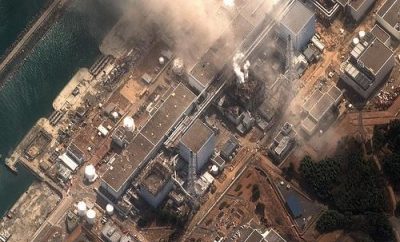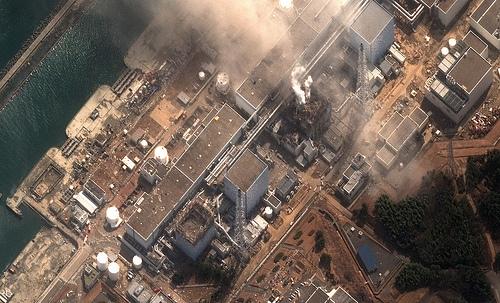The effects of radiation released from the damaged Fukushima nuclear plant continue to be felt, as the U.S. Congress is readying proposals to deal with the storage of spent nuclear fuel in this side of the world.

The effects of the Fukushima nuclear crisis are beginning to be felt. Now, a bipartisan group in the Senate wants to solve the issue of nuclear spent fuel storage. Creative Commons photo by DigitalGlobe-Imagery.
Two whales caught 650 km away from the melting reactors have shown intense radiation, and plutonium — just one pound evenly distributed to every person on Earth could kill all — has been found dangerously far from the site.
The article also notes that almost three months after the 9.0 magnitude earthquake and tsunami that shook Japan, workers still do not have access to all the areas needing cleanup. Meanwhile, Richard Black, environmental correspondent at the BBC, recently analyzed the history of nuclear power and found an industry that has created a business model that makes states inheritably connected to all the liabilities, but unable to participate in profit-sharing. In Fukushima, taxpayers will carry almost the entirety of the $100 billion cleanup costs. Black adds:
Accidents as big as Fukushima are, fortunately, very rare.
But even without them, the risk that liabilities will fall on the public purse is higher than for other energy technologies, simply because of the timescale.
That timescale refers to the long time that nuclear waste is bound to outlive any of us. In the U.S. the plan to create a vast national storage site in Yucca Mountain was put aside, but a bipartisan duo in the Senate – made up of Sen. Murkowski (R-AK) and Sen. Landrieu (D-LA) – is looking to pass legislation creating new storage sites for nuclear spent fuel. In this push, however, senators hope to avoid re-creating a situation where one site bears the burden of storing the entire nation’s nuclear waste. Their proposal calls for the Department of Energy to create two storage sites on a temporary basis.
Restarting the conversation is a positive first step, and provides a bit of hope for the bill actually making it to the president’s desk at a time where congressional gridlock has prevented action in many critical issues.
